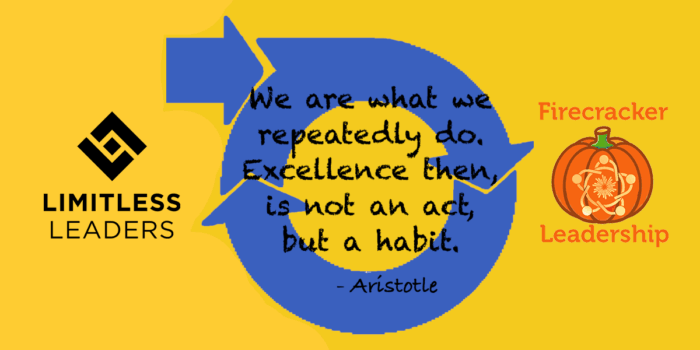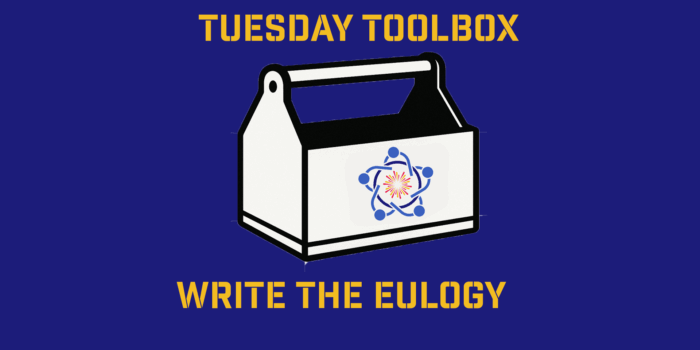I find myself defending my beliefs instead of looking for ways to challenge them. Who else will join me in inviting challenge?
When a reporter asked Bill Gates how would he define what he does for a living, he said simply, “I am a scientist.”
“I devote maybe ten percent [of my time] to business thinking. Business isn’t that complicated. I wouldn’t want to put it on my business card. I’m a scientist.” (Scientific American, 1994)
A scientist. What does it mean?
Of course, you probably won’t find Mr. Gates strolling around in a lab coat, recording blood measurements of his favorite rat at 2 AM. It’s also unlikely that one of the world’s most successful entrepreneurs is secretly an aspiring academic.
It does show, however, that Gates sees himself not as the hand-shaking, deal-making, profit-raking “businessman” figure we’ve been programmed to expect, but rather as a contemplative, rational man who credits his success largely to his mode of thinking.
But what exactly is his mode of thinking? What does it mean, to think like a scientist? Rational thought has been around for a while, and it doesn’t seem all that uncommon. How is Gates’s rational thinking different from everyone else’s?
The answer is probably not what you’d expect.
The myth of intelligence
It’s remarkably revealing how old movies show “nerds” as the sworn enemies to the “jocks.” The implication is that the two groups are somehow analogical: the latter have lots of muscle on the outside, while the former have muscle “on the inside.” (where “it matters.”)
It’s a pleasant construct, because it’s so simple. It explains everything. The athletes spend 8 hours a day on the court, sweating, building their bodies. The geeks spend 8 hours a day in the library and playing video games, expanding their minds.
It implies that intelligence is the mental equivalent of physical strength. That it grows slowly and linearly; that more always means better; that genetics play a major role. It implies that in order to get smarter, we need to treat our minds like a muscle.
Which isn’t necessarily wrong. An hour in the library won’t kill you. But it won’t automatically make you smart, either.
The winning mode of thinking
In a book called Think Again: The Power of Knowing What You Don’t Know (rated “must-read” by Bill Gates, btw), author Adam Grant describes a fascinating pattern he noticed among top performers he had studied or had the privilege to teach.
He noticed that what separated the very best from the rest wasn’t some absolute measure of intelligence, like books read or languages spoken, but rather their ability and proclivity to spend time in scientific thinking mode, which is different from the other modes of thinking:
- We enter politician mode when we try to persuade others of our ideas
- We enter prosecutor mode when we try to attack the ideas of others
- We enter preacher mode when we try to defend and spread our beliefs
- We enter scientist mode when we’re looking for the truth
It’s not like the other three modes of thinking are inherently useless. No, there are times when we need to defend our standpoints and persuade others of our truths. But, as a general rule, top performers tend to converge towards scientific thinking, which is based on cool-headed analysis, hypothesis testing and empirical evidence. Scientists don’t debate; they discuss.
“The smarter they were, the harder they failed”
The author further argues that true intelligence is less about building the “mental muscle” and more about updating your opinions and beliefs on a regular basis. In a world where language isn’t a problem and pretty much all knowledge is available at a touch of a phone screen, it is much more important to foster the ability to think clearly rather than simply pack your head with information.
In fact, Grant points out that being hyper-intelligent (in a traditional sense) can actually make you more susceptible to bias. To quote the book,
“Research reveals that the higher you score on an IQ test, the more likely you are to fall for stereotypes, because you’re faster at recognizing patterns. And recent experiments suggest that the smarter you are, the more you might struggle to update your beliefs.”
Smart, or simply not dumb?
All of this is very different from how we normally view intelligence. Traditionally, we treat intelligence as a positive force that grows somewhat linearly, over time, with effort, like a tree.
But Adam Grant offers a new model, where intelligence is seen as a living, reiterating ecosystem in a constant flux of opposing forces — like a garden. Intelligence, in this view, is just as dependent on growing its strengths as it is on trimming its weaknesses.
The examples of this are actually quite simple and intuitive. Have you ever met someone who’s extremely smart and extremely dumb at the same time? I used to think these people were paradoxes.
Now I realize that they’ve simply let their egos take over, deciding at some point that they know “enough” to start ignoring all the things they don’t know. From what I’ve seen, it’s a steady downhill trend from there, as the world around them changes but their beliefs stay stuck.
The telltale sign of incompetence
In fact, people who are smart but driven by faulty beliefs will simply dig their own grave that much faster. They’ll be able to convince themselves and others around them that they’re right when they are, in fact, wrong. As a result, they will find little resistance even going in completely the wrong direction.
The good news is that scientific thinking seems to be the answer to this problem. The book provides sufficient evidence that “rethinking” is just as important as actual “thinking” in pretty much any area of your life. As one of the reviewers reminds us, “…the telltale sign of a lack of knowledge is, paradoxically, arrogance and overconfidence, whereas in those with actual expertise you often see the opposite: humility, doubt, and open-mindedness.”
The bad news is that it’s even more difficult than it sounds. Constantly seeking out (possibly) contradicting evidence, recognizing your own biases and proving yourself wrong is a lot more taxing and a lot less gratifying than simply learning a language or finishing a fat book. It’s an effortful lifestyle grounded in humility and self-reflection, where you get to be wrong much more often than you get to be right. It’s difficult, and it’s scary, and it’s damn exhausting.
But it’s not impossible. And it’s definitely worth it. Here’s how.
Why people cling to ridiculously idiotic beliefs
There’s a website called Mental Floss. It’s full of fun blog articles that are designed to entertain more than inform. But it’s the name of the website that I’d like to highlight, as it captures the idea of this article so precisely.
And the idea is that to build and maintain usable, practical, flexible 21st century intelligence, you need to have an equivalent of flossing for your thinking habits. A daily hygienic effort for your mind.
There is no clear-cut answer on what this could look like in your life, as scientific thinking is a wide-range lifestyle change and not a specific practice. The actual practices that would help you engage in scientific thinking depend entirely on the situation.
But author Adam Grant does give a few suggestions on how we can loosen up our convictions and allow our minds to start questioning themselves without undergoing agony.
One of the biggest reasons why people fail to update their beliefs is because… they simply get attached to them. People tend to define their own personalities via a set of opinions, rather than more abstract objects like values or goals. The opinions could range anywhere from “damn Mexicans taking our jobs” to “love is love” — if it becomes a part of your personality, it will be incredibly difficult to let go of.
The author masterfully notes that in such cases, when a person’s beliefs are questioned, they feel personally attacked (quote, “punched in the mind.”) Just remember the last time a family member overreacted to some fly-by remark of yours. Such people are not interested in having their beliefs invalidated, because, in their mind, they are their beliefs.
Solution to this problem? Don’t be that person. Don’t let opinions dictate your personality. Define your personality through something else — be it a parent’s love, ambition for success or devotion to God’s values — and your beliefs will themselves ask to be updated to better serve your goals.
The only way to become and stay intelligent
But the truth is, you won’t get very far with scientific thinking if you don’t learn to enjoy it. Just like any effortful habit, it only becomes truly pleasurable once it’s ingrained in your grey matter. It’s the moment when you start ignoring the pain of being wrong when the benefits of scientific thinking shine through.
And the benefits are glorious: every time you’re proven wrong, you’re actually getting smarter. Not just in an on-paper, I-just-read-a-book type of manner. No, when an incorrect belief or opinion is shattered, the impact is so systemic, you actually become a slightly different person, who happens to be slightly smarter.
Kjirste Morrell, an MIT PhD and one of the world’s most successful forecasters (she predicts political events ’n’ stuff,) relies solely on the clarity and objectivity of her mind to make her predictions. Her secret, as she disclosed in the book, is rigorously re-thinking things she thinks she already knows.
What sets her apart is that she’s actually found a way to enjoy it:
“There’s no benefit to me for being wrong for longer. It’s much better if I change my beliefs sooner, and it’s a good feeling to have that sense of a discovery, that surprise — I would think people would enjoy that.”
It’s a counter-intuitive way of living, but it is manageable. Like any habit, self-corrective thinking is mostly a matter of practice and consistency. Given time, people actually learn to enjoy being wrong — because they know they just came one step closer to being right.
In a way, only children retain the luxury of learning about the world without constantly having to unlearn things that are no longer correct. When you’re a blank slate, every drop of ink is meaningful information. As adults, however, we’re forced to tear out pages and rewrite entire chapters of our own minds, just to make room for a better story.
That’s the price of intelligence. That’s scientific thinking.



